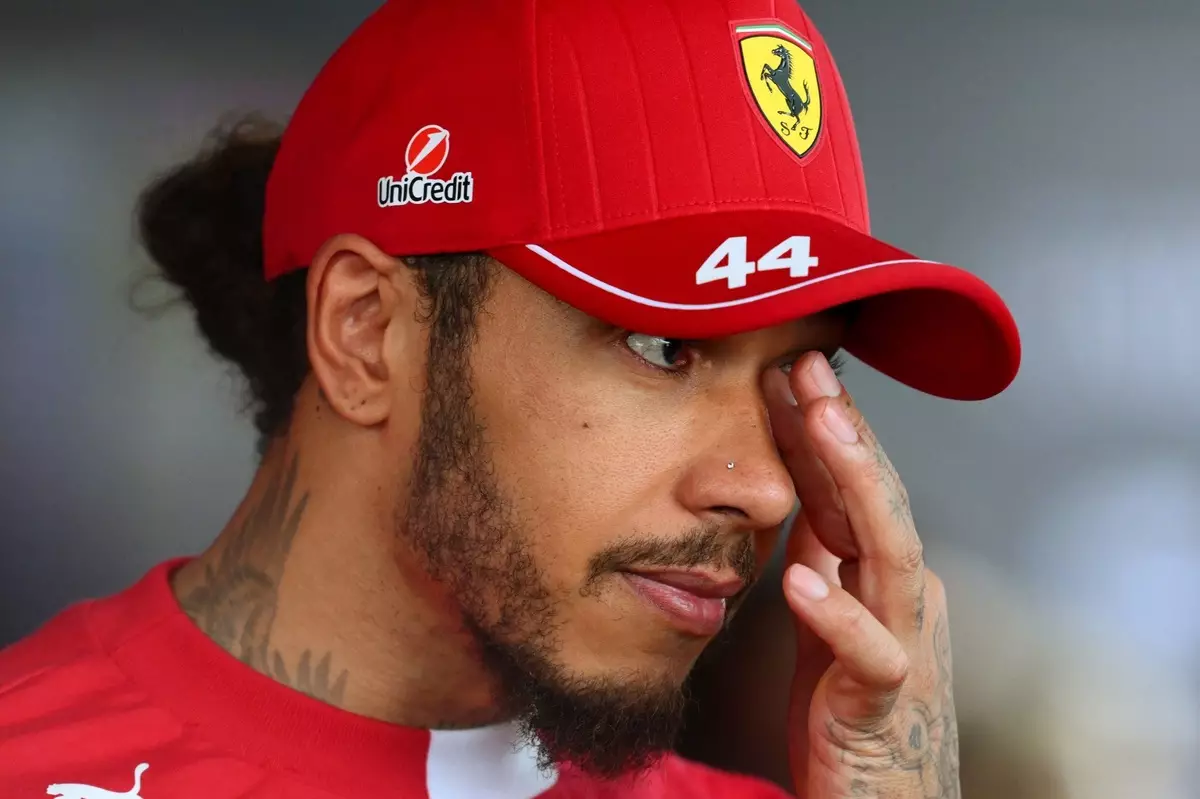Lewis Hamilton’s recent performance at the Hungarian Grand Prix underscores a harsh reality for even the most accomplished athletes: the relentless nature of Formula 1 demands resilience, adaptability, and a mental toughness that can weather the most discouraging setbacks. Hamilton, a driver whose name is stamped into the sport’s history books, faced an unexpected early exit from Q2, which relegated him to a disappointing 12th on the grid. Such a result isn’t just a minor setback; it’s a jarring reminder that even legends are vulnerable when circumstances don’t align.
What sets Hamilton apart, however, is not just his talent but his relentless pursuit of excellence. His frustration following the race is natural — it signals a high-performing mindset that refuses to accept mediocrity. Yet, this same frustration, if not channeled correctly, can become a destructive force. The risk is that negative self-talk and doubts might erode the confidence that has powered his previous victories. This moment represents a crucial juncture where Hamilton must harness his inner strength, find clarity amidst disappointment, and reframe the narrative around setbacks as opportunities for growth.
Analytical Insights Versus Emotional Response
It’s easy to judge Hamilton’s reactions based solely on the surface, but a deeper analysis reveals the complex emotional landscape of elite competition. After qualifying, Hamilton’s remark suggesting Ferrari should find a different driver was not merely venting frustration but an expression of the immense pressure he feels to deliver at all times. The harsh reality is that a single poor qualifying session, especially in a tightly contested midfield, can overshadow weeks of hard work.
Fred Vasseur’s perspective on Hamilton’s performance offers a valuable lens. He points out that Hamilton’s weekend was “worse than it was,” emphasizing how tiny margins—fractions of a second—decide outcome in F1. Vasseur’s words highlight an essential truth: the difference between greatness and mid-pack is razor-thin. This acknowledgment, however, doesn’t diminish Hamilton’s frustration; rather, it frames it within a context of relentless competition where every lap, every detail, matters profoundly.
What Hamilton needs now is not just technical tweaks or strategic adjustments but a mental reset. His self-criticism, while part of the high-performance psyche, shouldn’t morph into unproductive rumination. Instead, he can use this adversity to fine-tune his focus, reaffirm his ambitions, and reassert his dominance. The questions he raises about his performance should serve as catalysts for targeted improvement, not as labels of failure.
Redefining Resilience and Future Trajectory
The true test for Hamilton lies in his ability to rebound swiftly. History shows that setbacks are inevitable, even for the greatest champions. His past triumphs serve as proof that resilience isn’t a passive trait but an active choice. To truly reignite his competitive edge, Hamilton must revisit the fundamentals—technical precision, strategic patience, and unwavering confidence.
The dynamic within Mercedes and his team also plays a pivotal role. As Vasseur notes, the margins are minuscule and often dictated by external factors beyond individual control. But within those boundaries, Hamilton’s mindset can make all the difference. His demanding nature has historically been a double-edged sword; however, it can be harnessed as a source of motivation to push boundaries and outthink opponents.
Moreover, Hamilton’s experience positions him uniquely to transform this challenge into a catalyst for a comeback. His ability to learn from every race, extract lessons amid disappointment, and maintain a relentless belief in his capabilities is what separates true champions from mere contenders. If he leans into self-awareness and maintains his mental discipline, he has the potential not just to bounce back but to inspire a new chapter of his illustrious career.
The Power of Mindset in High-Stakes Motorsport
Ultimately, Hamilton’s future hinges on his mindset. The mental resilience required in Formula 1 reaches beyond technical skill; it’s about cultivating a perspective that embraces adversity as a vital part of growth. His recent struggles should be seen not as an end but as a clarion call to refine his mental strategy.
The sport is shifting rapidly, with newer talents and technological evolutions continuously raising the bar. For Hamilton, the challenge is threefold: adapt to these changes, maintain his physical and psychological edge, and sustain his legendary competitive spirit. The narrative surrounding him need not be one of declining performance but one of resurgence. The real power lies in his ability to decode setbacks, reframe frustrations into fuel, and rediscover the unyielding passion that made him a seven-time world champion.
In the high-octane universe of Formula 1, the champion’s true test isn’t just about speed but about spirit. Lewis Hamilton’s story is far from over—it is merely at a crossroads where introspection, resilience, and relentless will can redefine greatness anew.

